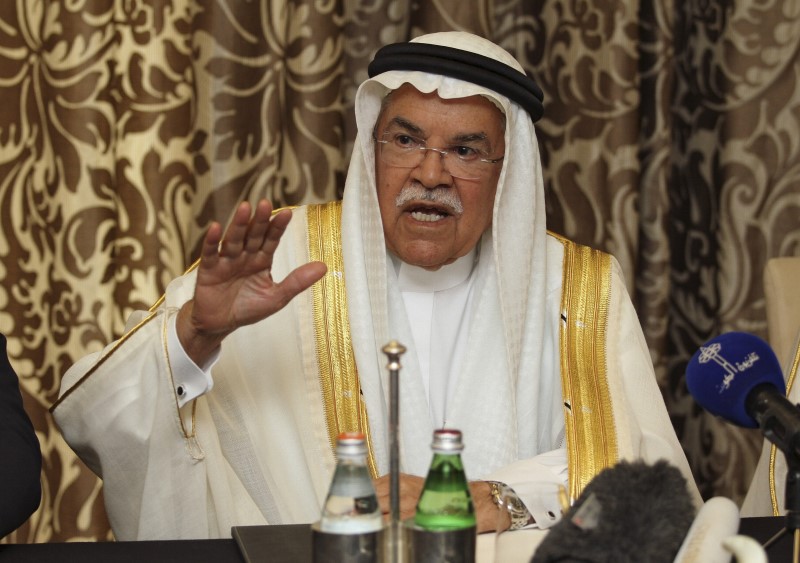By Liz Hampton and Luc Cohen
HOUSTON (Reuters) - Saudi Oil Minister Ali Al-Naimi said on Tuesday he was confident more nations would join a pact to freeze output at existing levels in talks expected next month, but effectively ruled out production cuts by major crude producers any time soon.
Addressing the annual IHS CERAWeek conference in Houston, Naimi told global energy executives that growing support for the freeze and stronger demand should over time ease a global glut that has pushed oil prices (CLc1) (LCOc1) to their lowest levels in more than a decade.
"A freeze is the beginning of a process. If we can get all the major producers to agree not to add additional barrels then this high inventory we have now will probably decline in due time," Naimi, possibly the world's most powerful oil policymaker, said.
But he was emphatic markets should not view the nascent agreement as a prelude to production cuts, saying there was not enough trust to get such a deal.
"That is not going to happen because not many countries are going to deliver," Naimi said during a Q&A session after his speech that broadly restated the rationale behind Saudi Arabia's decision to maintain output in the face of tumbling prices.
"Even if they say that they will cut production they will not do it. There is no sense in wasting our time seeking production cuts. They will not happen."
Traders have been skeptical whether freezing production near record levels could do much to support the market and oil prices fell some 4 percent after Naimi's comments. [L3N1621BD]
After a surprise meeting a week ago, Saudi Arabia, Russia, Venezuela and Qatar agreed to freeze production at January levels a week ago and Naimi said more support from other countries were likely to follow.
"Hopefully some time in March there will be another meeting and probably gather more agreements on freezing," he said.
The veteran oil official did not specifically address the issue of Iran, which is the biggest obstacle to a global deal as it focuses on ramping up output after sanctions were lifted.
While the speech and subsequent discussion marked his most expansive public comments in months, Naimi offered little new insight on the state of oil markets or the evolution of policymaking in Saudi Arabia, the world's biggest exporter.
Instead, he sought to make peace with an oil industry that has struggled to come to terms with the Kingdom's and OPEC's decision in late 2014 to refrain from cutting output to shore up prices, as it had done for decades. Oil prices have fallen 70 percent since mid-2014 as surplus crude piled up.
"We have not declared war on shale or any given country or company, contrary to all the rumors," Naimi said in the speech.
It was Naimi's first public appearance in the United States since the fateful Organization of Petroleum Exporting Countries' November 2014 meeting.
"We are doing what every other industry representative in this room is doing. We are responding to challenging market conditions and seeking the best possible outcome in a highly competitive environment."
He said the kingdom welcomed "all sources of supply," including shale.
"We are hopeful that the nimbleness and responsiveness demonstrated by shale oil producers will continue. These supplies may be needed quickly once markets balance and tighten."

Naimi also reiterated his longstanding position that Saudi Arabia was ready to meet the demand of its customers, maintaining a cushion of spare production capacity and remaining open to "cooperative action" with other producers to create a stable oil market.